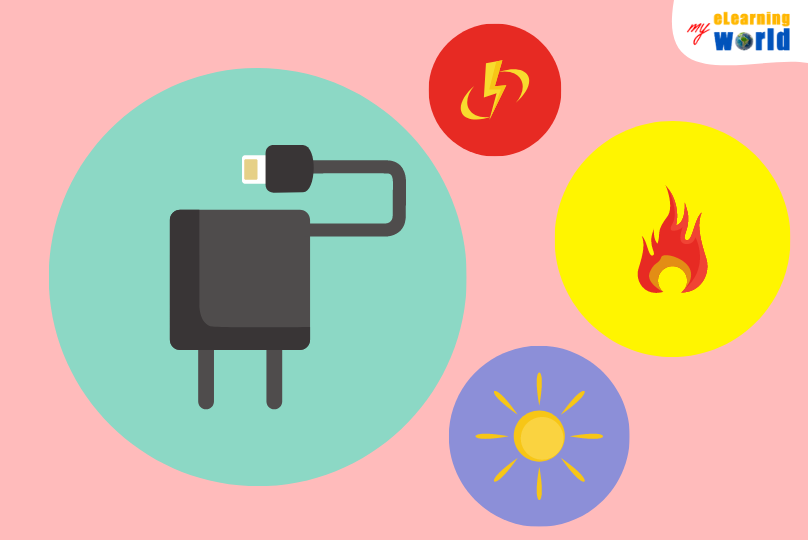If you’re constantly asking yourself, “Why is my charger hot?” you’re not alone.
This is a common issue that is faced by many people often. It can happen with a cell phone charger, tablet charger, or laptop charger.
But is it serious? Should you be worried about it being a fire hazard?
Determining if it is normal and what to do about it may seem tricky, but we have you covered.
In this article, we will explain why your type of phone charger or laptop charger may be hot, whether it’s ok or not, and what you can do to prevent this from happening again.
If you are in a room that has a lot of electronic devices (like a classroom or office) and notice numerous chargers are hot, my immediate advice would be to purchase a laptop charging cart or a Chromebook charging cart. Teachers, professors, and educators often need to be able to charge multiple devices at once for their students.
Making this purchase will prevent you from worrying about if many chargers are overheating because you will be saving energy by only using one outlet.
Okay, now let’s talk in-depth about why your device charger may be hot and if it is something you should be concerned about.
Why Is My Charger Hot?
To answer your question of “why is my charger hot”, you must first learn when it is ok and when it is not ok to have a hot charger. This applies to phone chargers, laptop chargers, and more.
When It Is Ok For My Charger to Be Hot?
The majority of people use a wall charger, which plugs into your device from the wall outlet. The heat coming from your charger is easily noticeable and may make you nervous, but it is typically normal as long as it does not exceed 50 degrees Celsius (122 degrees Fahrenheit).
The main reason why a charger may appear to be hot or heating up is because it is taking the power voltage from the wall socket and converting it to power the cell phone, laptop, or other electronic devices. The device will begin to heat up because the wall voltage is somewhere between 110 to 220 volts, while the cellular device is only 5 volts. This causes the laptop or cell phone charger to do a lot of work which generates quite a bit of heat.
If you ever look at your cell phone charger, you will notice that there are a few chips that are close to each other inside. The designers of the chargers placed these chips close to the plastic cover for a reason, and that reason is to help the heat escape easier. Therefore, it is normal to feel heat around these areas of the charger.
As an educator or teacher, you may be interested in learning about cell phone charger stations and storage solutions. These charger stations and storage solutions are essential to keeping your classroom organized, saving energy, and helping your students charge and store several devices at once.
If you have a charger that is getting too hot and are not sure if it is normal, check out Joe Lam’s YouTube video. He will explain when it is normal and when it is not as well as how to use household items to fix this situation quickly.
Trust your instincts. If you feel like it is way too hot, take the device to a specialist who can help you diagnose and repair the problem.
When It Is Not Ok For My Charger to Be Hot?
You might be asking, “When is it bad if my charger gets hot?”
It is important to keep in mind that it is normal for your charger to get hot, but the heating must remain moderate.
If your charger reaches burning temperatures, it is not normal and there is a big problem. You should be able to touch the charger comfortably without getting burnt or it causing damage to any surfaces it lays on. If the charger is hot enough to be uncomfortable to the touch, there’s likely a problem that needs to be addressed in most cases.
Most technicians diagnose this issue as possessing a serious electrical problem which is most likely found inside the phone or charger.
My advice would be to purchase a new replacement charger and see if you still have the same issue. This will help determine if it is a problem with the device itself or the charger. If the problem persists with a new charger, you should take your device to a repair shop immediately to see what is causing the problem.
Most of the time when a phone, tablet, or laptop gets scalding hot, it is because the charger is not working correctly, usually because it’s one of those cheap chargers that doesn’t last long. This means that the charger is not converting the voltages to the device, and the voltages are too high for the phone. If you do not seek help with this issue, your phone and battery will become severely damaged and could even explode or start a fire.
Below, I will explain a few frequent reasons why your charger is becoming too hot. These issues are not considered normal and will require you to take action to prevent any accidents from occurring.
1. Charging Cable Problems
Sometimes the charging cables may have issues. This can be easily fixed by purchasing a new charging cable.
2. Cheap Substandard Problems
It is recommended to only use official name brand chargers that come with the electronic device. Cheap chargers are usually not manufactured correctly and will have all types of issues.
Therefore, it is always recommended to spend the extra money on name brand chargers to prevent any issues that could arise from using one of those cheaper chargers.
3. Defective Charger
Sometimes chargers are defective. This is common and does happen more often than we like. Maybe a name brand charger was not manufactured correctly or just does not work right. If this is the case, simply throw it out and purchase a new one. The company may give you a refund if you let them know about this issue right away.
4. Incompatible Charger Adapter
You need to make sure that the charger adapter that you are using is compatible. If you bought a third-party charger adapter online, it’s entirely possible it’s not compatible with your device, leading the charger to get very hot.
If the charger has a terminal that is compatible to your device port, this does not guarantee that the device should be used to charge the device.
By still choosing to use an incompatible charger adapter, you are risking the device’s health by exposing it to increased temperatures.
So, always make sure you’re using the right charger for your device. If you’re using an iPhone, use a quality iPhone charger. If you’re using an Android device, make sure you’re using the proper charger that is compatible with your device.
5. Leaving Your Phone or Other Device Charging For Too Long
A charger should not be left at 100 percent for hours.
Therefore, it is not recommended to leave your mobile phones or other devices charging for long periods of time, such as at night when you are sleeping.
If you leave your cell phone, tablet, or laptop charging for too long, it will begin to overheat and damage the device’s battery. This can kill your battery life over time.
6. Placing Connected Chargers On Cushioned Surfaces
Cushioned surfaces limit the air flow to the charger or device. This will trap heat and cause temperatures to rise, causing your device to potentially overheat and get damged.
My advice is to move the electronic device to a flat, hard surface while it is charging to ensure that the air can freely flow and heat can easily escape.
7. Device Malfunction
A short circuit is caused by a device malfunction, and a device malfunction will most likely lead to permanent electrical issues in the device. This will cause problems with the charger and may even cause it to overheat. If this happens, you should replace your device with the company that you bought it from.
8. Electrical System Abnormality
Electrical system abnormalities do not occur often, but they can cause your device to become too hot while charging. This is typically hard to determine, but a person who specializes in electronics, electrical devices, or the company you bought the device from may be able to help you diagnose this.
9. Dirt
Sometimes your charger or device is just dirty or dusty. You can try to clean the charging port and your device to prevent it from overheating.
10. Using the Device While It Is Charging
The issue may be something as simple as you using it while it is charging. This can cause the device to become overworked by keeping up with your commands while also trying to charge.
My recommendation is to leave your device alone while it is charging.
Once it is charged, you can pick it up and begin using it again.
For a closer look at overheating problems with fast chargers, take a look at Mrwhosetheboss’ YouTube video. He will show you fast chargers and the issues that typically occur with these type of chargers
Keep this video in mind when you see companies bragging about how fast their chargers are.
Conclusion
As you can see, there are many reasons why your charger may be hot. It is always best to be too careful than not careful at all.
If you find yourself continuously having the thought, “Why is my charger hot?” and it’s not for one of the reasons above, you should speak to an expert or replace the charger immediately.
This advice can go for any type of device, such as cell phones, laptops, tablets, and more.
To prevent your chargers from experiencing extremely hot temperatures, I personally suggest purchasing a charging station.














